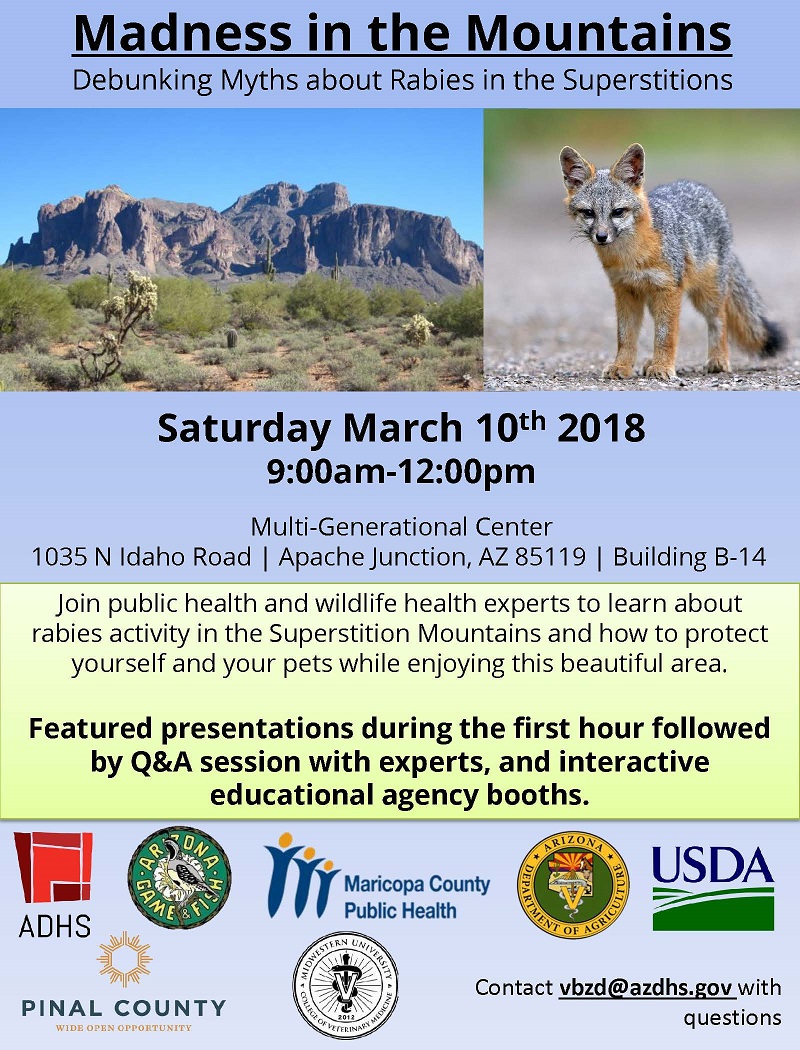 Note: This week is National Public Health Week. This week I have a five-part public health series that explores the vast network of programs and services that help improve the health and wellness of all Arizonans.
Note: This week is National Public Health Week. This week I have a five-part public health series that explores the vast network of programs and services that help improve the health and wellness of all Arizonans.
Our Epidemiology and Disease Control team plays a huge role in monitoring food safety and tracking the spread of food borne illnesses like E. coli and Salmonella. They work with our State Public Health Lab, which works rapidly to test human and food samples to identify the presence of the germs that cause foodborne illness. Both teams work seamlessly to ensure our food supply is safe by identifying outbreaks and stopping their spread. Our most recent outbreak was in March 2017 as four cases of Shiga toxin-producing E. coli O157:H7 linked to I.M. Healthy Brand SoyNut Butter were reported in Arizona with cases reported throughout the U.S.
The Food Safety team emphasizes “protection from contamination” in all aspects of food preparation. When out doing inspections, ADHS and local health department inspectors look for good hygiene practices that include hand washing, clean surfaces and equipment, safe food handling and storage and kitchens that are up to code. With the most recent outbreak, our team worked with CDC and the manufacturer to issue a voluntary recall. Stores removed the product from their shelves and recommended that consumers not eat it.
The Infectious Disease Epidemiology Team utilizes data collected in Medical Electronic Disease Surveillance Intelligence System (MEDSIS) to monitor disease trends and identify outbreaks to halt further spread. Additional E. coli cases were reported throughout the country that were linked to the same product. Our disease detectives’ understanding of how E. coli is transmitted, its symptoms, treatments, and severity was used to inform Arizonans about the dangers of consuming the product and lessen the likelihood of the outbreak spreading further.
The State Public Health Lab collected and tested samples, both from people as well as products containing the soynut butter. The microbiology team attempted to grow any E. Coli in the product and compared its DNA to that of the known outbreak strain. Positive and negative results were reported to other health care agencies as well as the CDC. The product samples our lab tested did not yield a match, but partners in other state labs were able to report positive tests confirming the E. coli O157:H7 strain in the product.
Keeping our citizens safe from food borne illnesses is not an easy task. Best practices exist to stop an outbreak before it occurs, but in the event an outbreak happens, we have highly trained staff piecing together a mystery based on available clues and putting it to a stop. These best practices can also be applied on a smaller scale for home cooks.
We encourage Arizonans cooking in their home to use the same hygienic practices of hand washing, maintaining clean surfaces, using proper food storage, and separating uncooked and cooked ingredients. Cooking temperatures are also important as certain foods require different temperatures to ensure they are thoroughly cooked. You can read all five blogs in my National Public Health week series here.











